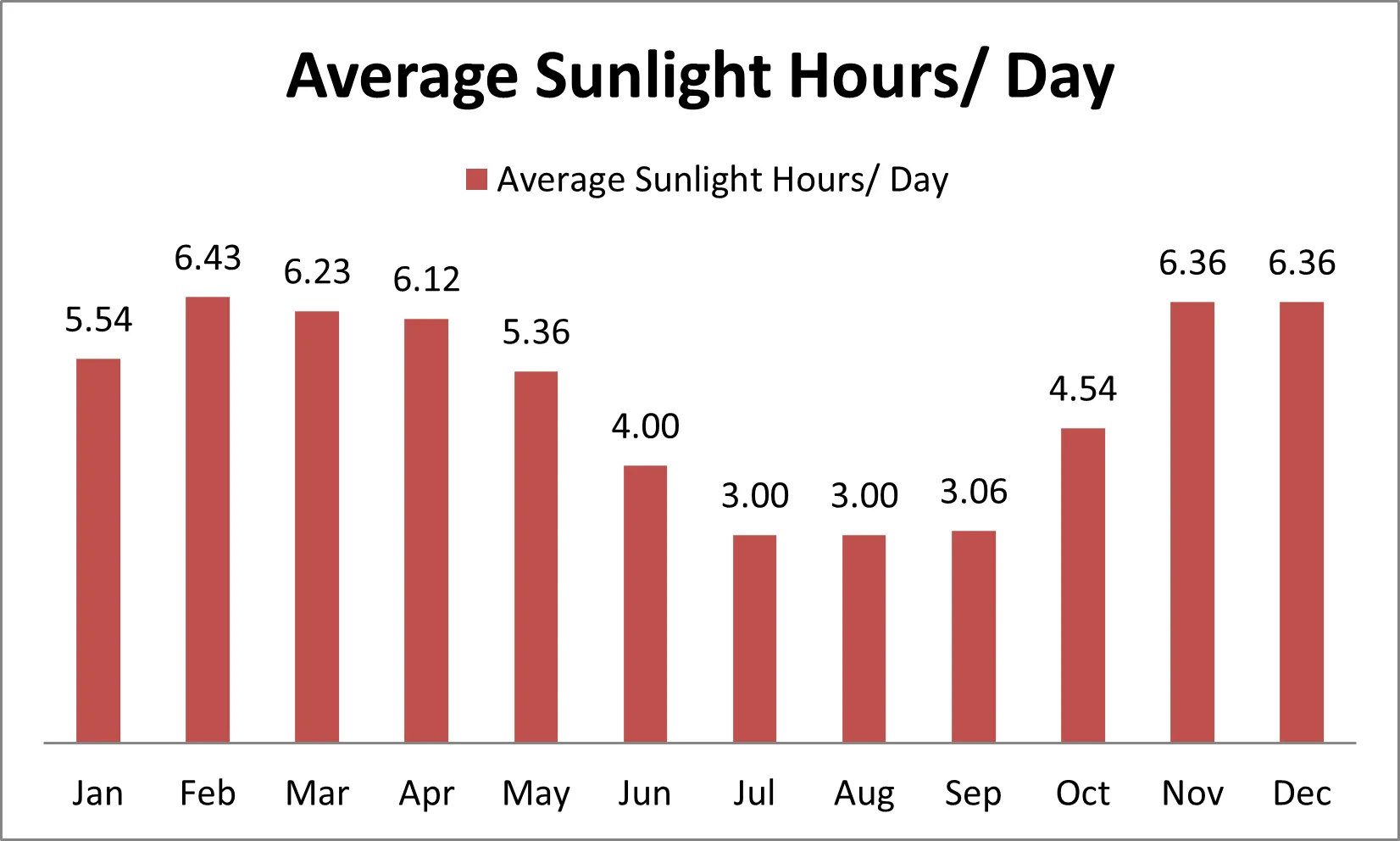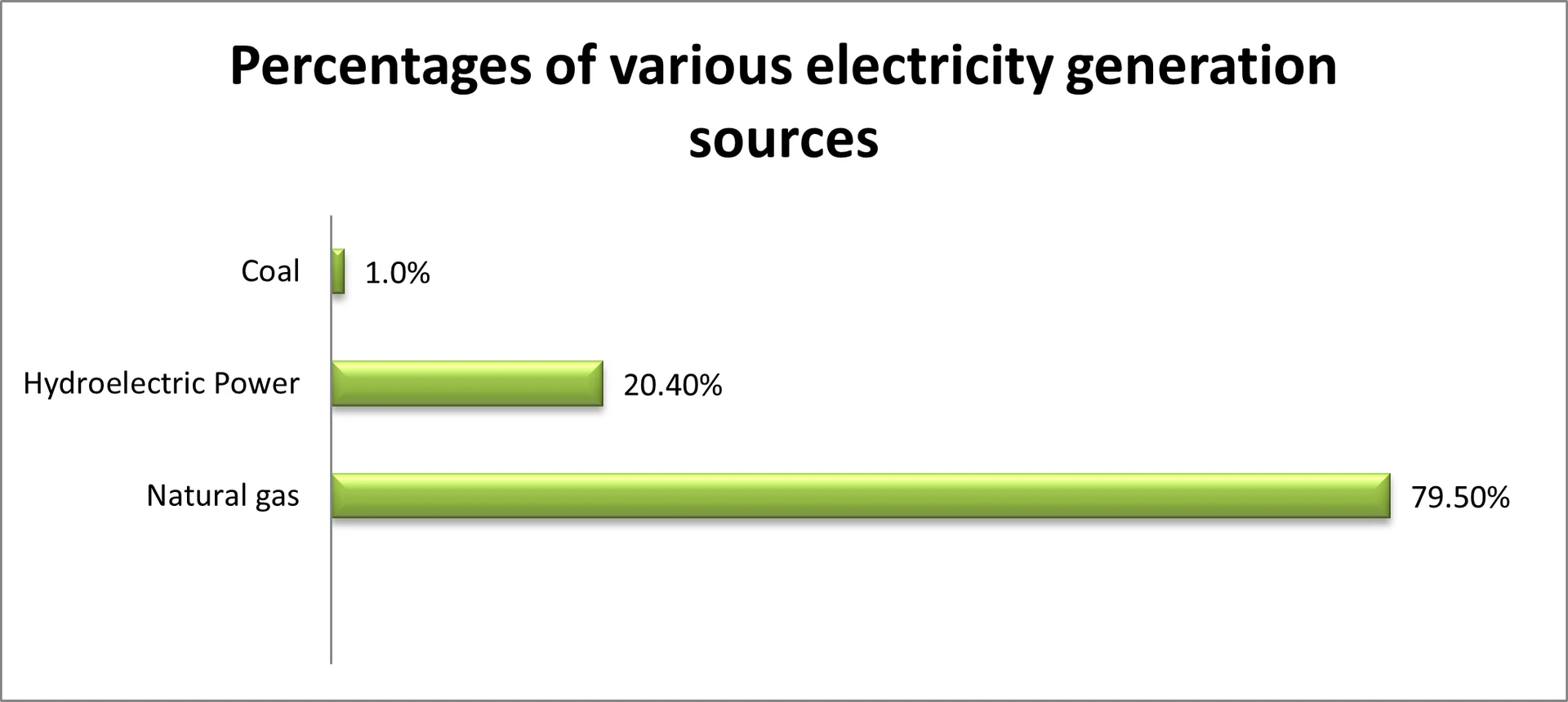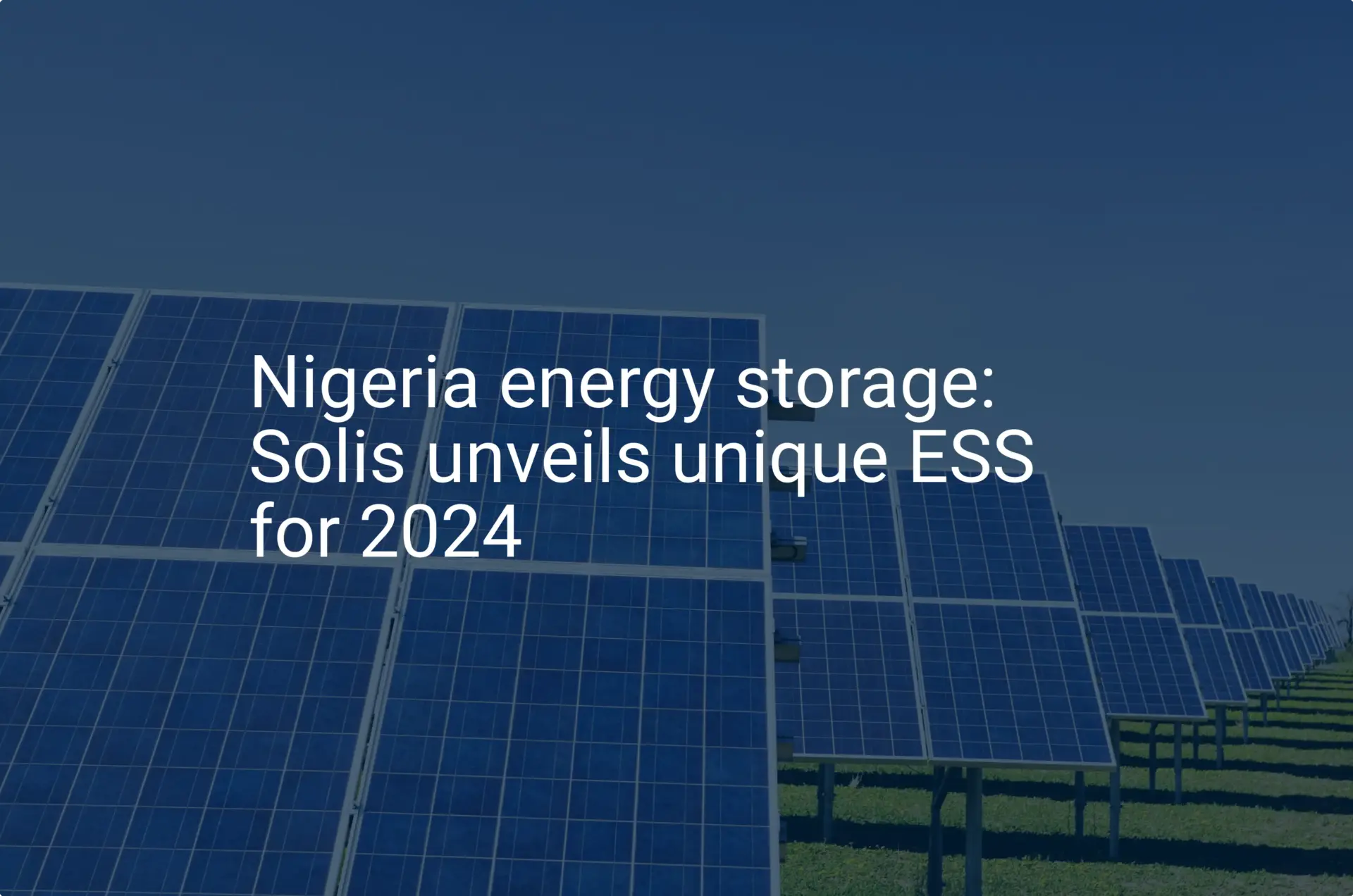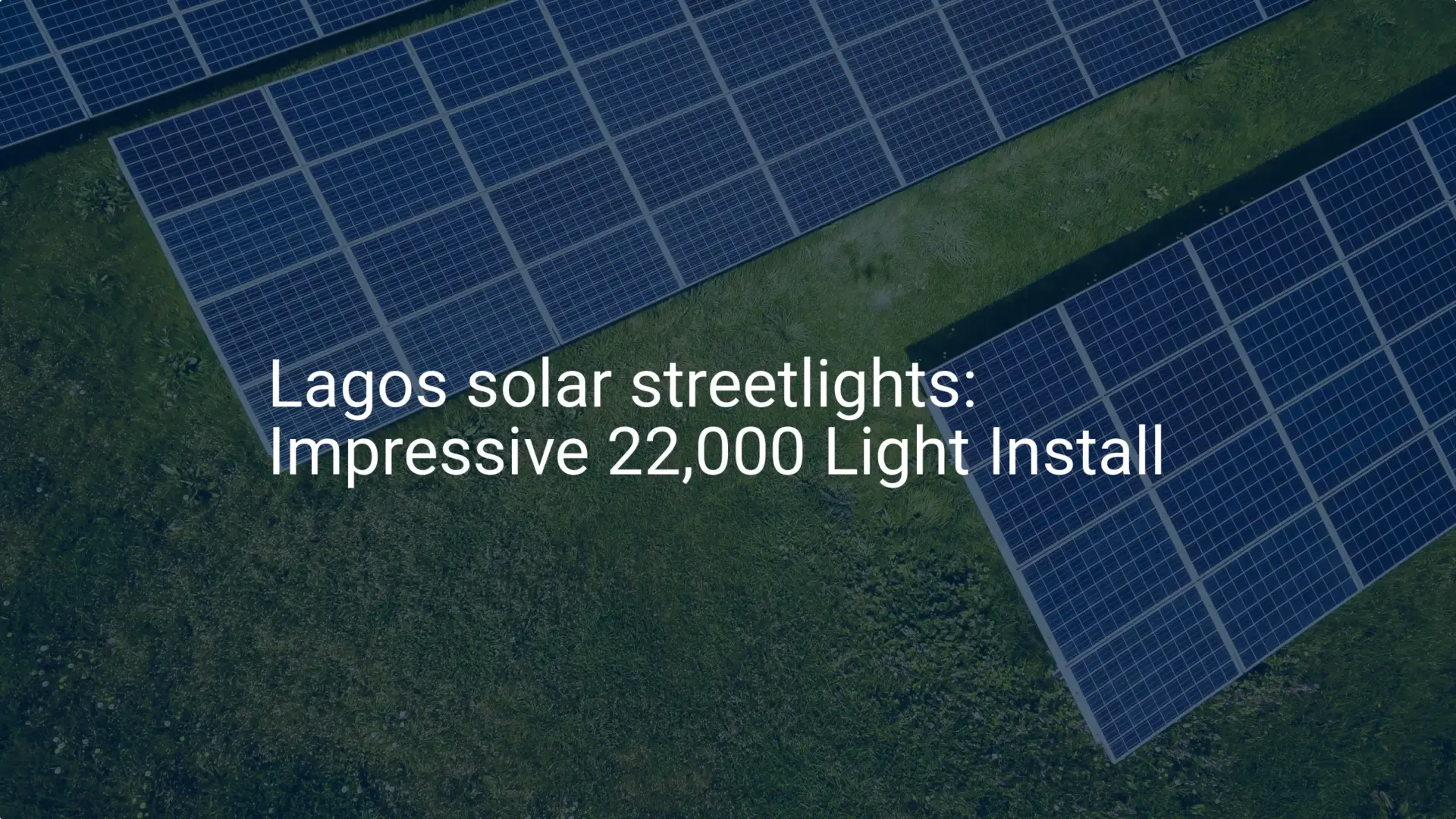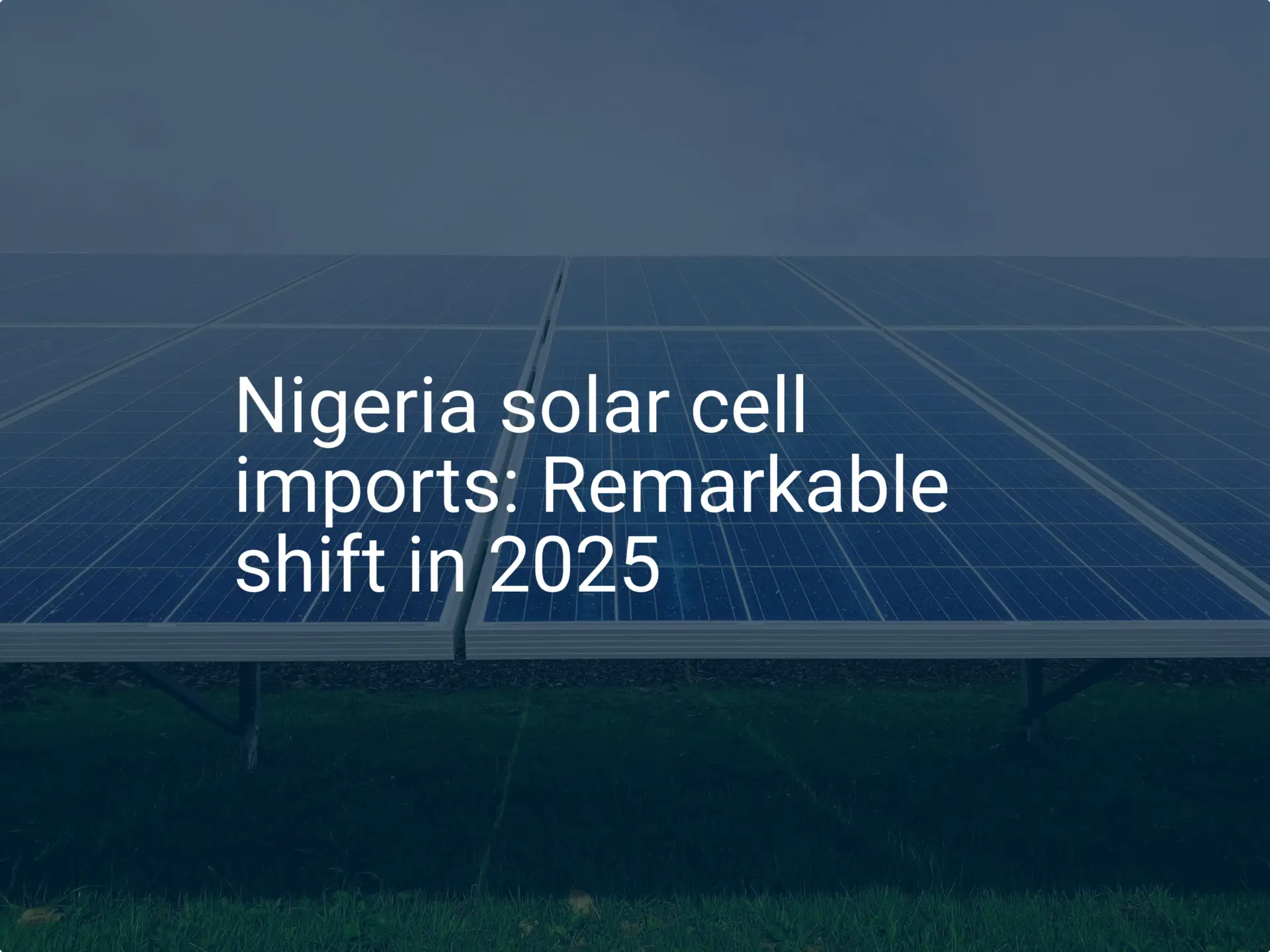Discover comprehensive insights into the statistics, market trends, and growth potential surrounding the solar panel manufacturing industry in Nigeria
- Climate Top. (2024). Sunshine & daylight hours in Lagos, Nigeria. https://www.climate.top/nigeria/lagos/sunlight/ [Accessed September 14, 2024]
- Diemuodeke, O. E., Mulugetta, Y., Njoku, H. I., Briggs, T. A., & Ojapah, M. M. (2021). Solar PV electrification in Nigeria: Current status and affordability analysis. Journal of Power and Energy Engineering, 9(5). https://doi.org/10.4236/jpee.2021.95001 [Accessed September 13, 2024]
- Statista. (2024). Electricity prices in Nigeria as of September 2023, by user group. https://www.statista.com/statistics/1305909/electricity-prices-in-nigeria-by-user-group/ [Accessed September 14, 2024]
- Covenant Journal. (n.d.). Electric grid reliability: An assessment of the Nigerian power. https://journals.covenantuniversity.edu.ng/index.php/cjet/article/download/3308/1518#:~:text=Despite%20significant%20investments%20in%20the,is%20a%20cause%20for%20concern [Accessed September 13, 2024]
- International Renewable Energy Agency. (2024). Renewable energy statistics 2024. https://www.irena.org/-/media/Files/IRENA/Agency/Publication/2024/Jul/IRENA_Renewable_Energy_Statistics_2024.pdf [Accessed September 13, 2024]
- Wartsila. (n.d.). Modelling Nigeria’s path to 100% renewable energy by 2060. https://www.wartsila.com/energy/towards-100-renewable-energy/pathways-for-africas-energy-future/nigeria-30-30-30-and-beyond#:~:text=whilst%20also%20meeting%20the%20nation’s%20growing%20energy,least%2030%%20of%20renewable%20capacity%20by%202030 [Accessed September 13, 2024]
- Solarcreed. (2023). What is the levelised cost of electricity (LCOE) of solar PV? https://solarcreed.com/nl/blogs/solarcreed-blog/what-is-the-levelised-cost-of-electricity-lcoe-from-solar-pv-systems-in-nigeria?srsltid=AfmBOoqsMEWiZYjfv4MVN7WAbck-ayItUvUDpnemjmBWJe55ooyUfJFK [Accessed September 13, 2024]
- (n.d.). Comparison of costs of electricity generation in Nigeria. https://ng.boell.org/sites/default/files/true_cost_of_power_technical_report_final.pdf [Accessed September 13, 2024]
- Statista. (2024). Distribution of electricity production in Nigeria by source. https://www.statista.com/statistics/1237541/nigeria-distribution-of-electricity-production-by-source/#:~:text=Natural%20gas%20is%20by%20far,percent%20of%20Nigeria’s%20power%20production [Accessed September 14, 2024]
- Statista. (2024). Hours of cumulative power supply daily available in Nigeria in 2023. https://www.statista.com/statistics/1403874/nigeria-power-supply-daily-hours-availability/ [Accessed September 14, 2024]
- ESI Africa. (2024). More healthcare facilities to be powered by solar energy. https://www.esi-africa.com/renewable-energy/solar/nigeria-more-healthcare-facilities-to-be-powered-by-solar-energy/#:~:text=How%20many%20people%20use%20solar,to%20a%20solar%20home%20system [Accessed September 13, 2024]
- Environewsnigeria. (2024). Energy firm targets 30,000 homes with solar systems. https://www.environewsnigeria.com/energy-firm-targets-30000-homes-with-solar-systems/ [Accessed September 13, 2024]
- Bhambhani, A. (2023). Largest utility scale solar farm in Nigeria online. https://taiyangnews.info/markets/largest-utility-scale-solar-farm-in-nigeria-online [Accessed September 14, 2024]
- Okoro, U. (2023). Nigeria commissions largest grid-connected solar plant. https://energy-utilities.com/nigeria-commissions-largest-grid-connected-solar-news120056.html [Accessed September 13, 2024]
- Africa 21. (2023). Nigeria: The country’s largest solar power plant (10 MWp) goes into operation in Kano. https://www.afrik21.africa/en/nigeria-the-countrys-largest-solar-power-plant-10-mwp-goes-into-operation-in-kano/ [Accessed September 13, 2024]
- ESmap. (2023). Off grid opportunity in Nigeria. https://www.esmap.org/sites/default/files/Presentations/REA_Damilola-Off-Grid%20Opportunity_03122017_web.pdf [Accessed September 13, 2024]
- Everoze. (2022). Nigeria PV potential. https://everoze.com/nigerias-pv-potential/ [Accessed September 14, 2024]
- Solar Financed Africa. (2021). Solar projects in Nigeria: 10 largest solar power plants. https://solarfinanced.africa/solar-projects-in-nigeria-10-largest-solar-power-plants/ [Accessed September 13, 2024]
- Worldsalaries. (2024). Average solar photovoltaic installer salary in Nigeria. https://worldsalaries.com/average-solar-photovoltaic-installer-salary-in-nigeria/ [Accessed September 14, 2024]
- Worldometer. (2024). Population of Nigeria. https://www.worldometers.info/world-population/nigeria-population/ [Accessed September 13, 2024]
- Nigerian Property Centre. (2024). Rent for commercial warehouse. https://nigeriapropertycentre.com/for-rent/commercial/warehouses/showtype [Accessed September 13, 2024]
- Nigerian Property Centre. (2024). Rent for commercial office. https://nigeriapropertycentre.com/for-rent/commercial/offices/showtype [Accessed September 13, 2024]
- Trade.gov. (2023). Nigeria – Country commercial guide. https://www.trade.gov/country-commercial-guides/electricity-power-systems-and-renewable-energy#:~:text=Currently%2C%20the%20on%2Dgrid%20energy%20mix%20in%20Nigeria,(80%)%20and%20hydro%20(20%)%20power%20generating%20sources [Accessed September 14, 2024]
- Nigerian Electricity System Operator. (2024). https://nsong.org/ [Accessed September 13, 2024]
- Statista. (2023). Electricity access in Nigeria in 2022, by area. https://www.statista.com/statistics/1119633/share-of-households-without-electricity-access-in-nigeria-by-area/#:~:text=As%20of%202022%2C%20about%2061,South%20reports%20the%20lowest%20shares [Accessed September 14, 2024]
- Yunus Kamp. (2024). Nigeria: Electricity exports on the up ahead of pre-capping measures. https://www.esi-africa.com/industry-sectors/transmission-and-distribution/nigeria-electricity-exports-on-the-up-ahead-of-pre-capping-measures/#:~:text=Nigeria:%20Electricity%20exports%20on%20the%20up%20ahead%20of%20pre%2Dcapping%20measures&text=Nigeria%20exported%20%E2%82%A658.65%20billion,Have%20you%20read? [Accessed September 13, 2024]
- International Comparative Legal Guides (ICLG). (n.d.). Renewable energy laws and regulations – Nigeria. https://iclg.com/practice-areas/renewable-energy-laws-and-regulations/nigeria [Accessed September 14, 2024]
- PV Technology. (2024). Top five solar PV plants in development in Nigeria. https://www.power-technology.com/data-insights/top-5-solar-pv-plants-in-development-in-nigeria/ [Accessed September 14, 2024]

